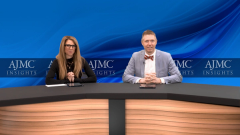
Strategies for Managing Costs of Long-Term BTK Inhibitor Therapy
Panelists discuss strategies and resources health care providers can offer to help alleviate the financial burden of long-term Bruton tyrosine kinase (BTK) inhibitor therapy for patients with chronic lymphocytic leukemia (CLL) and mantle cell lymphoma (MCL), focusing on support programs, cost-sharing solutions, and patient assistance initiatives.
Episodes in this series

Video content above is prompted by the following:
Alleviating the financial burden of long-term BTK inhibitor therapy requires a multi-pronged strategy, especially for older adults with CLL or MCL who may face technological and systemic barriers. One of the most effective resources is a dedicated financial navigator—someone who can guide patients through complex insurance processes, identify co-pay assistance programs, and liaise with pharmaceutical companies offering support services. These navigators are particularly crucial for patients who lack digital literacy or access to online resources, which is often the case in older populations. Without this support, patients may not fully understand their coverage or how to access the financial assistance they qualify for.
Additionally, pairing financial support with disease education is essential. Many patients may not grasp the chronic nature of BTK inhibitor therapy or understand the potential side effects that can accumulate over time. Helping patients recognize symptoms early—like joint stiffness or cardiovascular issues—can lead to timely interventions, such as dose adjustments or temporary discontinuation, that prevent complications. Educated patients are more likely to stay adherent, avoid hospitalizations, and ultimately experience better outcomes with fewer financial setbacks. This underscores the importance of holistic care teams that include both financial and clinical navigators.
Policy changes like the Inflation Reduction Act offer a promising start by capping out-of-pocket costs, but true equity will require manufacturers of newer BTK inhibitors to follow suit with competitive pricing. If one treatment becomes vastly more affordable than its peers, clinical decision-making may be dictated by cost rather than efficacy or safety. The hope is that market pressure and policy advocacy will drive broader accessibility across all generations of BTK inhibitors. Until then, clinicians and health systems must continue to push for individualized, financially feasible care through coordinated support systems and patient-centered resource allocation.
Newsletter
Stay ahead of policy, cost, and value—subscribe to AJMC for expert insights at the intersection of clinical care and health economics.











